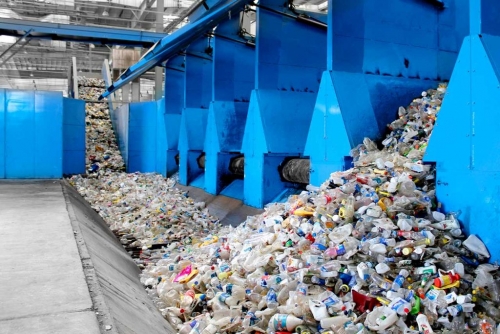Only 13 percent of waste produced in Bahrain is recyclable: study
TDT | Manama
The Daily Tribune – www.newsofbahrain.com
Staff Reporter
Only 13 per cent of waste in Bahrain is recyclable, a study says, highlighting the immense waste crisis the country is currently facing.
This was revealed in a study carried out by EcoMena, which found that Bahrain is one of the highest per capita waste generators worldwide estimated at 1.67–1.80 kg per person per day.
“Bahrain produces the largest amount of waste per person among GCC countries despite being the smallest nation in the region. Rising population, high waste generation growth rate, limited land availability and scarcity of waste disposal sites has made solid waste management a highly challenging task for Bahrain’s policy-makers, urban planners and municipalities,” the study said.
The Kingdom generates more than 1.2 million tonnes of solid waste every year. Daily garbage production across the nation exceeds 4,500 tonnes. Municipal solid waste is characterized by a high percentage of organic material (around 60pc), which is mainly composed of food wastes.
Among the recyclable wastes, plastic constitutes 7pc and glass 4pc. The study said the Kingdom is grappling with waste management problems arising out of population growth, rapid industrialisation, high per capita waste generation and poor public awareness.
“The government is trying hard to improve the waste management scenario by launching recycling initiatives, waste-to-energy projects and public awareness campaigns. However, more efforts, in the form of effective legislations, large-scale investments, modern SWM technology deployment and environmental awareness, are required from all stakeholders to implement a sustainable waste management system in Bahrain.”
According to Dr Sumaya Yousif, a Bahraini researcher in the field, wasting food is of grave consequence in a world, where seven million people suffer from hunger everyday globally.
“A person in Bahrain wastes around 132 kilograms of food annually which is a total of 230,000 tonnes costing around BD95 million according to the latest UNEP statistics,” she said. “This requires immediate action to prevent this massive waste of food.”
“It is critical to raise awareness about reusing and recycling food in various ways to prevent wastage such as using innovative cooking methods as well as turning leftovers into compost at individual homes and across the country.”
She also highlighted the importance of developing food banks and societies that preserve food while also emphasizing that it is critical to invest in the educational sector within efforts to raise awareness and prepare the future generation to invest in environmental innovations as well as following a circular economy system.
Dr Yousif noted that around a third of the goods that are wasted in the region is wasted at the retail and consumer level. According to the United Nations Environment Programme report, global food waste amounted to 931 million tonnes last year with wastage in the Arab region exceeding more than 40 million tonnes.
Related Posts

